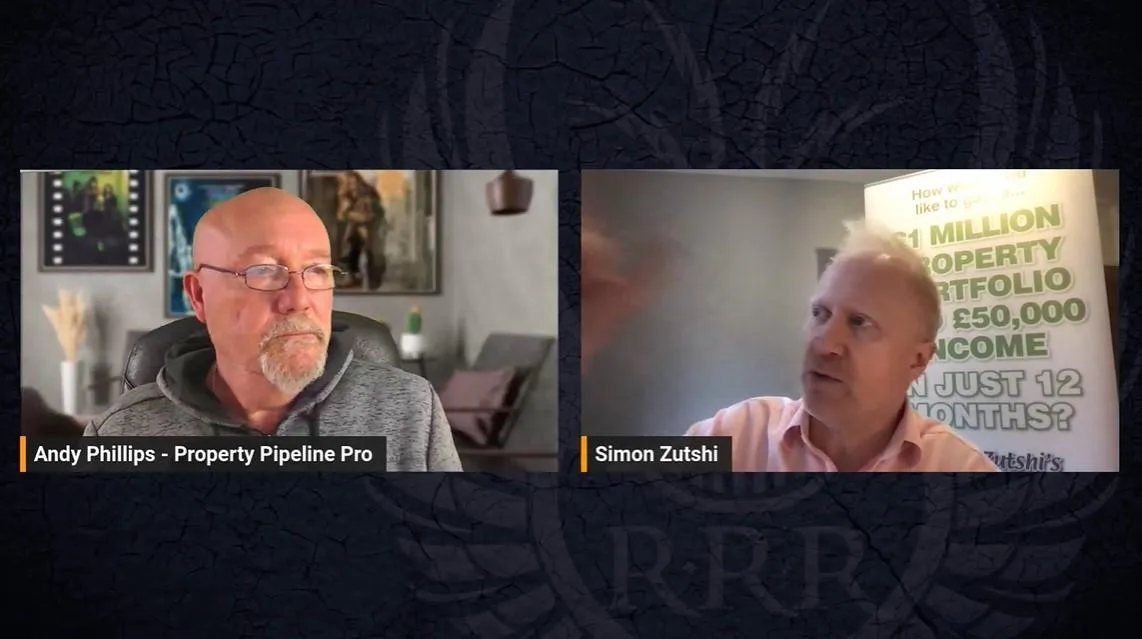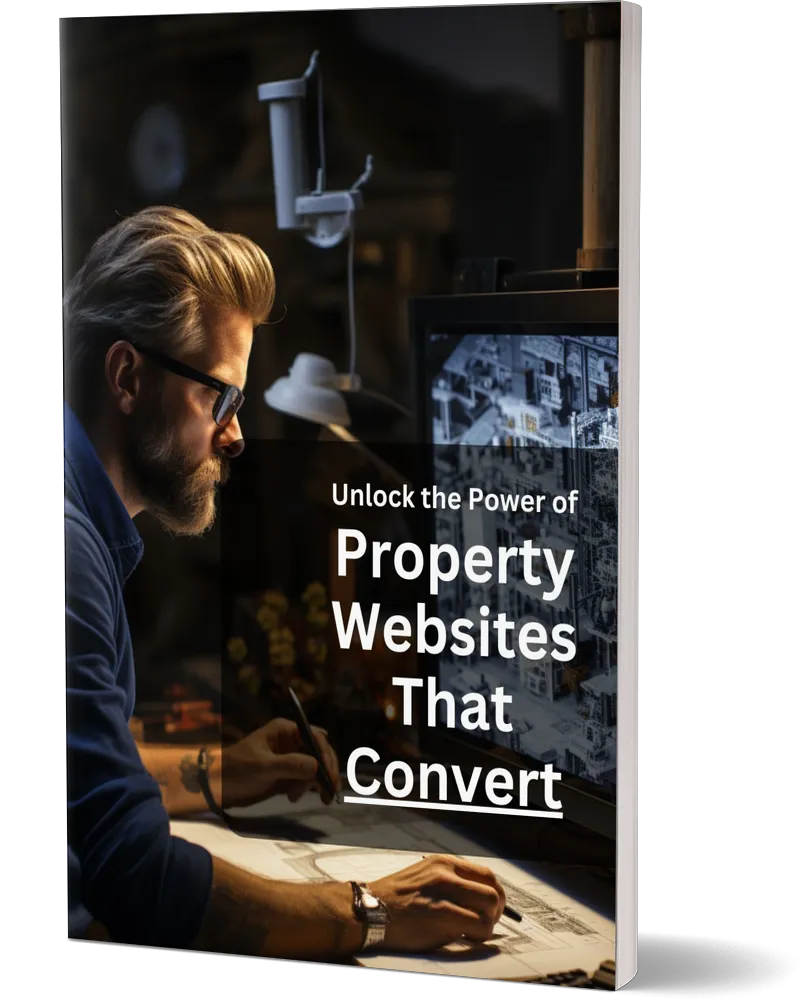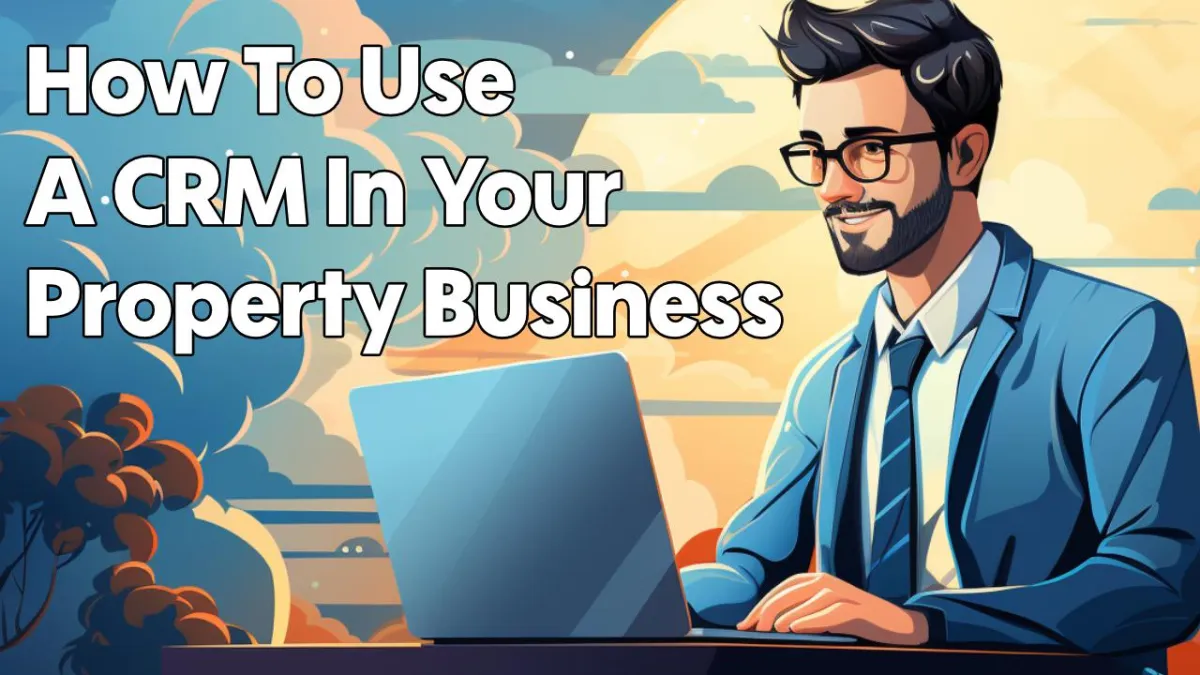
Leveraging Social Media to Attract Investors:

By Andy Phillips
Property Pipeline Pro
September 25, 2023

Unleashing the Digital Potential
social media platforms have evolved into vibrant marketplaces where conversations flow freely, communities thrive, and opportunities await.
For property businesses seeking to attract investors and partners, the power of social media cannot be underestimated. It's a dynamic arena where engagement, content strategy, and a well crafted presence can spell the difference between obscurity and success.
In this comprehensive article, we look at the immense potential of Leveraging Social Media to Attract Investors into your property business.
Each point provides valuable insights, strategies, and techniques that will empower property businesses to harness the full power of social media in their quest to engage investors, build trust, and foster meaningful relationships.
#1: The Power of Social Media for Property Businesses
the power of social media is a force to be reckoned with, and property businesses are no exception to its transformative influence. Social media platforms have transcended their original purpose as mere communication tools and have become bustling ecosystems where property businesses can establish, grow, and nurture their online presence.
The significance of social media for property businesses lies in its ability to connect with investors and partners, showcase properties and property projects, and foster meaningful relationships.
Social media platforms, whether it's Facebook, Instagram, LinkedIn, or Twitter (now X), offer a dynamic stage for property businesses to engage their target audience.
These platforms provide a space for sharing property deals, market insights, success stories, and lots more. It's a platform where property businesses can exhibit their expertise, build trust, and captivate the attention of potential investors.
Moreover, the real time nature of social media enables property businesses to stay current and responsive to market trends and investor interests. It's an arena where timely updates and news can be shared instantly, keeping prospect investors and current clients informed and engaged.
The power of social media for property businesses also extends to its role in fostering a sense of community. Social media platforms provide a space for like minded investors, partners, and industry professionals to connect, share experiences, and collaborate. This sense of community can lead to valuable partnerships and networking opportunities.
I ran a Facebook group for pin (Simon Zutshi) called pin Community for over 7 years, building the membership to about 20K. It's a great place to connect with like minded people .
Additionally, social media is a valuable channel for showcasing the human side of your property business.
Behind the properties and investment opportunities are real people with stories and experiences.
Sharing the human element of your business through social media can resonate with investors on a personal level, forging deeper connections and trust.
The power of social media for property businesses lies in its ability to amplify your online presence, connect with investors, build trust, and foster a vibrant community. Recognising this power and harnessing it effectively can elevate your property business to new heights in the digital age.
#2: Choosing the Right Social Media Platforms
not all platforms are created equal, and choosing the right ones for your property business is a crucial strategic decision. Each social media platform caters to a specific demographic and user behavior, making it essential to align your choice with your target audience and business goals.

Here's a closer look at some popular social media platforms and their unique characteristics:
Facebook: With over 3.3 billion monthly active users (as of 2023), Facebook offers a vast and diverse audience. It's ideal for property businesses looking to reach a wide range of potential investors.
Facebook's advertising features are robust, allowing you to precisely target your audience based on demographics, interests, and behaviors. If you are using a motivated seller site that's focused on a specific area, Facebook ads may be the way to go.
Instagram: Known for its visual appeal, Instagram is perfect for showcasing property deals through high-quality images and videos. It's particularly effective for reaching younger, visually-oriented audiences. Instagram Stories and IGTV offer additional opportunities for engagement.
LinkedIn: LinkedIn is a professional networking platform where property businesses can connect with investors, partners, and industry professionals. It's a valuable platform for sharing industry insights, success stories, and forming B2B and business to private investor relationships.
Twitter (Now X): X's fast paced nature makes it suitable for real-time updates, news, and market trends. Property businesses can leverage X to engage with an audience looking for quick, concise information.
YouTube: YouTube is a video platform that has been going for many years and has been used as a business video channel by many different businesses including property businesses, YouTube is ideal for property businesses looking to create in depth property tours, market insights, and educational content. It's the second largest search engine globally, making it an excellent platform for content discovery.
TikTok: TikTok's short form video format is gaining popularity, especially among younger audiences. While it may not be the primary platform for property people, it can be used creatively to showcase unique properties and engage with a younger demographic. Having said that, it's becoming a platform that many property business owners are finding a very lucrative stage to attract potential investors with short bite sized informative videos.
Choosing the right social media platforms involves understanding your target audience's preferences, behaviors, and demographics. It also requires aligning your content strategy with each platform's strengths and limitations. By selecting the platforms that best resonate with your audience and goals, you can maximize the impact of your social media efforts.
#3: Creating an Impactful Social Media Profile
Your social media profile is your digital business card, the first impression potential investors and partners will have of your property business. Creating an impactful social media profile is essential for setting the right tone, conveying professionalism, and engaging your audience effectively.
Here are key elements to consider when crafting your social media profile:
Profile Picture: Choose a clear and professional profile picture that represents your brand. It could be your company logo or a high-quality headshot of a key team member.
Cover Photo: Utilise the cover photo space to showcase your properties, brand imagery, or convey key messages. Ensure the cover photo aligns with your branding.
Username and Handle: Your username or handle should be easily recognisable and consistent across different social media platforms. Consistency helps in brand recognition.
Bio/About Section: Craft a concise and compelling bio that encapsulates your property business's value proposition. Use keywords relevant to your industry to improve discoverability.
Contact Information: Make it easy for visitors to contact you by including contact details like email, phone number, and a link to your website. Ensure accuracy and accessibility.
Website Link: Provide a direct link to your property business website. This is a primary gateway for visitors to explore your offerings and investment opportunities. It's also where you can have you initial investor pack available as a download which means you can get potential investor partners onto your database and ready to follow them up.
Business Category: On some platforms, you can select a business category that aligns with your industry. Choose the category most relevant to your property business.
Additional Information: Some platforms offer fields for additional information, such as location, hours of operation, and company milestones. Fill out these details to provide comprehensive information to your audience.
Featured Content: Highlight key content, posts, or videos that represent your property business. This can include featured properties, success stories, or informative articles. One thing you can do is have a pillar piece of content that provides a key pain point that your target audience is experiencing and within that content offer a downloadable giveaway in the form of a PDF so you can get them onto your database.
Privacy Settings: Review and adjust privacy settings to ensure your profile's visibility aligns with your strategy. Some platforms allow you to restrict or open your profile to various audiences.
Consistency: Maintain a consistent brand identity across your social media profiles. Use the same branding elements, such as logos and color schemes, to create a cohesive online presence.
Optimisation: Ensure that your profile is optimised for search within the social media platform. Use relevant keywords in your bio and posts to improve discoverability.
Verification: If eligible, consider pursuing profile verification. A verified badge adds an extra layer of credibility to your profile.
An impactful social media profile not only conveys professionalism but also serves as a gateway for potential investors and partners to explore your property business further. It sets the tone for your social media journey, making a positive first impression that can lead to meaningful connections and engagements.
#4: Content Strategy for Attracting Investors

Content is the lifeblood of your social media strategy for attracting investors to your property business. A well crafted content strategy is essential for engaging your audience, showcasing your expertise, and ultimately convincing potential investors to take action.
Here are key elements to consider when developing a content strategy for attracting investors:
Understand Your Audience: I know we speak about this a lot in the Property Marketing Education Hub, but by understanding the preferences, needs, and pain points of your target audience you can determine what kind of content are they interested in, look at the questions they have and then tailor your content to address these aspects.
Educational Content: Position your property business as an authority in the industry by sharing educational content. This can include market insights, guides on property investment, and informative articles.
Property Deals & Projects: Showcase your properties effectively. Use high quality images, videos, and detailed descriptions to make your deals or property projects stand out. Highlight unique selling points and investment potential.
Success Stories: Share success stories of investors who have benefited from working with you. Real-life examples add credibility and show that your offerings deliver results.
Market Updates: Keep your audience informed about market trends, changes in property values, and relevant news. Timely updates demonstrate your industry knowledge.
Visual Content: Visual content, such as images and videos, tends to perform exceptionally well on social media. Utilise these formats to showcase properties, share insights, and engage your audience.
Infographics: Condense complex information into easy-to-understand infographics. These are highly shareable and can help your content reach a broader audience.
Live Video: Leverage live video to provide real-time property tours, Q&A sessions, or behind-the-scenes glimpses of your business. Live videos often lead to higher engagement.
User-Generated Content: Encourage satisfied investors to share their experiences and testimonials on social media. User-generated content adds authenticity and credibility to your brand.
Interactive Content: Polls, quizzes, and interactive posts can boost engagement and encourage audience participation.
Content Calendar: Create a content calendar to plan and schedule posts in advance. A well-organized calendar ensures consistency and allows for strategic timing of content.
Storytelling: Craft compelling narratives around your properties and investment opportunities. Storytelling captivates your audience and makes your content more relatable.
Engagement: Actively engage with your audience by responding to comments, messages, and inquiries promptly. Encourage discussions and foster a sense of community.
Keywords and Hashtags: Use relevant keywords and hashtags to improve the discoverability of your content. Research popular industry-specific hashtags.
Analytics: Regularly analyze social media metrics to assess the performance of your content. Adjust your strategy based on what works best for your audience.
Variety: Keep your content diverse to cater to different preferences. Mix informative posts with visual content, success stories, and market updates.
Consistency: Consistency in posting is key. Stick to your content calendar and maintain a regular posting schedule to keep your audience engaged.
A well rounded content strategy not only attracts investors but also keeps them engaged and informed. It showcases your property business as a valuable resource in the world of property investment and establishes trust with your audience...
#5: Engagement and Community Building
Engagement is the real secret of your social media presence. It's the art of connecting with your audience, building relationships, and fostering a vibrant online community around your property business. Engagement is not just about numbers; it's about meaningful interactions that lead to trust and loyalty among your followers. In fact most of my clients that have a good social presence don't have a lot of people in their groups or pages, but the people who ARE there engage a lot.
Here's how to effectively engage and build a community on social media:
1. Respond Promptly: When followers comment on your posts or send messages, respond promptly. Acknowledge their comments and answer their questions. Show that you value their input and are attentive to their needs.
2. Encourage Discussions: Pose questions, polls, or discussion topics related to property investment or the real estate market. Encourage your audience to share their opinions and experiences.
3. Share User-Generated Content: If satisfied investors or partners share content related to your properties or services, reshare or repost it.
User-generated content adds authenticity and can inspire others to engage.
4. Be Authentic: Authenticity is key to building trust. Share behind-the-scenes glimpses of your property business, introduce team members, and showcase the human side of your brand.
5. Use Visuals: Visual content, including images and videos, tends to elicit more engagement. Use eye-catching visuals in your posts to grab your audience's attention. It's worth jumping onto canva.com to see what you can create there. It's quick and quite easy to produce some amazing social post graphics.
6. Host Contests or Challenges: Organise contests or challenges related to property investment. Offer prizes or incentives to participants. Contests can create excitement and generate user participation.
7. Listen to Feedback: Pay attention to both positive and negative feedback. Use feedback as an opportunity to improve and show that you value your audience's opinions.
8. Show Appreciation: Occasionally, express gratitude to your followers. Thank them for their support, engagement, or for being part of your community. A simple thank you can go a long way.
9. Use Stories and Live Video: Stories and live video offer real-time engagement opportunities. Use them for property tours, Q&A sessions, or to share updates. Live videos often generate immediate interaction.

If you do go down the LIVE Video route, then you need to use Streamyard, it's by far the best and easiest to use live streaming platform on the market and you can stream to multiple social media platforms simultaneously. This is the program I have used for years.
10. Create Value: Provide valuable content that educates, entertains, or informs your audience. Valuable content encourages sharing and can position your property business as an industry leader.
You can offer 'Lead Magnets' such as downloadable pdf's packed with great information. These can be given away if people submit their details. It's a great way to build a list of prospect investors you can follow up with later.
11. Celebrate Milestones: Celebrate milestones, whether they are related to your business, properties, or personal achievements. Share these moments with your audience.
12. Establish Community Guidelines: If you have a large and active community, consider establishing clear community guidelines. Guidelines can help maintain a positive and respectful atmosphere.
13. Collaborate with Followers: Collaborate with your followers on special projects, initiatives, or events. Involving your community in your activities can enhance their sense of belonging.
14. Monitor Trends: Stay attuned to social media trends and changes in your industry. Incorporate relevant trends into your content and engagement strategies.
Building a community on social media takes time and effort, but the rewards in terms of brand loyalty and advocacy are substantial. Engaging with your audience authentically fosters a sense of belonging and keeps your property business top of mind when investors are ready to make decisions.
#6: Hashtag Strategy
Hashtags are the signposts of the social media world, guiding users to content and conversations relevant to their interests. For property businesses seeking to expand their reach, a well-thought-out hashtag strategy can significantly impact their social media presence.
Here's how to develop an effective hashtag strategy:
1. Understand Your Audience: Consider the interests, behaviors, and preferences of your target audience. What keywords or phrases might they use when searching for property-related content?
2. Research Relevant Hashtags: Research industry-specific and popular hashtags related to property investment, real estate, and your niche. Tools like Hashtagify and RiteTag can help identify trending hashtags.
3. Mix Popular and Niche Hashtags: Balance your use of popular and niche hashtags. Popular hashtags can expose your content to a broader audience, while niche hashtags connect you with a more targeted audience interested in specific property types or investment opportunities.
4. Create Branded Hashtags: Consider creating branded hashtags unique to your property business. These hashtags can be used in your posts and encourage user-generated content. Ensure they are short, memorable, and reflect your brand's identity.
5. Use Location-Based Hashtags: If your properties are in specific locations, include location-based hashtags to reach potential investors interested in properties in those areas. You can also post ads for people motivated to sell their homes FAST!!!
6. Trending Hashtags: Stay updated with trending hashtags relevant to your industry. If a trending hashtag aligns with your content, join the conversation to increase your content's visibility.
7. Monitor Hashtag Performance: Regularly analyse the performance of the hashtags you use. Note which hashtags generate the most engagement and reach. Adjust your strategy based on the data.
8. Be Selective: Avoid overloading your posts with too many hashtags, as it can appear spammy. Focus on using a reasonable number of relevant hashtags that add value to your content.
9. Incorporate Long-Tail Hashtags: Long-tail hashtags are more specific and target a niche audience. They can help your content stand out and reach users with highly specific interests.
10. Test and Iterate: A hashtag strategy is not static. Continuously test different combinations of hashtags and iterate based on the results. Adapt to changes in trending topics and audience interests.
11. Observe Competitors: Analyse the hashtag strategies of competitors and industry leaders. Identify which hashtags they use successfully and consider incorporating similar ones into your strategy.
12. Create Hashtag Campaigns: Develop specific hashtag campaigns for events, property launches, or marketing campaigns. Promote these campaigns across your social media channels and encourage followers to participate.
A well-executed hashtag strategy can enhance the discoverability of your social media content, increase engagement, and connect your property business with a broader and more relevant audience. It's a powerful tool for expanding your online presence and attracting investors.
#7: Consistency and Scheduling
Consistency is the backbone of a successful social media strategy. Regularly posting content and engaging with your audience builds trust, keeps your property business top of mind, and fosters a sense of reliability. To maintain consistency, effective scheduling is essential.
Here's how to approach consistency and scheduling on social media:
1. Create a Content Calendar: Start by creating a content calendar that outlines your posting schedule. Decide how often you'll post on each platform and which types of content you'll share.

Posting haphazardly or sporadically can result in missed opportunities, reduced engagement, and a less cohesive online presence.
This is where a content calendar comes into play as an invaluable tool for businesses looking to maintain control over their social media posting and encourage consistent, strategic content sharing.
A content calendar is a schedule that outlines what content will be posted on various social media platforms and when it will be published. It's like a roadmap that guides your social media strategy, ensuring that you have a clear plan in place. Here's why it's so important:
Structure and Organization: A content calendar provides structure to your social media efforts. It helps you organize your content ideas, themes, and topics, making it easier to execute your strategy efficiently. With a well-structured calendar, you can avoid the last-minute scramble to find something to post.
Consistency: Maintaining a consistent posting schedule is crucial for keeping your audience engaged. When followers know when to expect your content, they're more likely to engage with it and return for more. A content calendar ensures you're regularly delivering valuable content to your audience.
Strategic Planning: A content calendar allows you to plan your content strategically. You can align your posts with specific campaigns, promotions, or events, ensuring that your social media efforts are in sync with your overall marketing strategy.
Content Variety: It helps you diversify your content. By planning in advance, you can mix up your content types, such as educational posts, promotional content, user-generated content, and behind-the-scenes glimpses. This variety keeps your feed interesting and engaging.
Time Efficiency: With a content calendar, you can schedule posts in advance. This saves you time and allows you to focus on other aspects of your business. Scheduling tools also enable you to reach your audience at optimal times, even if you're not online when the post goes live.
Avoiding Repetition: It helps prevent overusing the same types of content or themes. Repetitive content can lead to audience fatigue. A content calendar allows you to visualize your content mix and ensure variety.
Collaboration: For businesses with multiple team members managing social media, a content calendar facilitates collaboration and ensures everyone is on the same page. Team members can see the planned content and contribute their ideas or feedback.
Tracking Performance: When you have a planned schedule, it's easier to track the performance of your social media posts. You can analyze which types of content perform best and adjust your strategy accordingly.
Adaptability: While a content calendar provides structure, it also allows for flexibility. You can adapt your schedule to accommodate timely events, trending topics, or unexpected developments in your industry.
Goal Alignment: Every piece of content you post should align with your overall social media goals, whether it's increasing brand awareness, driving website traffic, or generating leads. A content calendar ensures your posts are goal-oriented.
Holidays and Special Occasions: Planning ahead with a content calendar ensures you don't miss out on leveraging holidays, seasonal events, or industry-specific occasions. These can provide excellent opportunities for engagement and promotion.
Content Repurposing: By seeing your content laid out on a calendar, you can identify opportunities to repurpose or repackage existing content. This maximizes the value of your content and saves time on creation.
Improved Quality: When you're not rushing to create content at the last minute, you have more time to craft high-quality posts. This can lead to better visuals, more compelling copy, and a more polished overall presence.
A content calendar is a fundamental tool for controlling and encouraging your social media posting. It brings structure, consistency, and strategic planning to your efforts, ultimately helping you maintain a cohesive online presence and engage your audience effectively.
2. Align with Audience Behavior: Schedule posts to align with your target audience's behavior. Analyse when your audience is most active on each platform and schedule posts during those times for maximum visibility.
3. Use Scheduling Tools: Leverage social media scheduling tools like Buffer, Hootsuite, or Sprout Social. These tools allow you to plan and schedule posts in advance, saving time and ensuring a consistent posting schedule.
4. Plan Ahead: Plan your content in advance. Develop a content strategy that covers a range of topics, from property listings and market updates to educational posts and success stories.
5. Mix Content Types: Keep your content diverse. Include a mix of images, videos, links, and text-based posts to cater to different preferences. Variety keeps your feed engaging.
6. Be Realistic: Be realistic about your capacity to create and schedule content. It's better to consistently post at a manageable rate than to overextend yourself and risk burnout.
7. Monitor Engagement: Pay attention to how your audience responds to different posting times and types of content. Adjust your schedule and content strategy based on engagement data.
8. Stay Current: Be agile in your scheduling. Adjust your content calendar to reflect current events, trends, or developments in the property market.
9. Delegate Responsibilities: If your property business has a team, delegate social media responsibilities. Assign roles for content creation, scheduling, and engagement to ensure smooth operations.
10. Engage Consistently: Consistency applies to engagement as well. Respond to comments, messages, and inquiries promptly. Consistent engagement fosters community building.
11. Test Posting Times: Experiment with different posting times to identify the windows when your audience is most active and responsive. Use this data to refine your scheduling.
12. Analyse Performance: Regularly review the performance of your scheduled posts. Metrics like engagement rates, reach, and click-through rates provide insights into what's working and what needs adjustment.
13. Adapt to Platform Changes: Social media platforms may change algorithms or features. Stay informed about platform updates and adjust your strategy accordingly.
14. Set Reminders: Use reminders or notifications to stay on top of your posting schedule. This ensures that you don't miss important posting times.
Consistency and scheduling are essential components of a successful social media strategy. They demonstrate reliability to your audience, keep your content flowing, and contribute to a strong online presence for your property business. By planning, scheduling, and adapting as needed, you can maintain a steady and engaging social media presence.
#8: Integrating Social Media with Your Website
Integrating social media with your property business's website is a strategic approach that can enhance your online presence, engage visitors, and attract potential investors. By seamlessly connecting your social media profiles with your website, you create a cohesive online ecosystem.
Here's how to effectively integrate social media with your website:
1. Social Media Icons: Place social media icons prominently on your website. These icons should link directly to your social media profiles. Common locations include the header, footer, or contact page.
2. Share Buttons: Include social media share buttons on your blog posts, property information pages, and other relevant content. This allows visitors to easily share your content on their social networks, increasing your reach.
3. Content Cross-Promotion: Promote your website content on your social media profiles and vice versa. Share blog articles, property project updates, success stories, and other content to drive traffic between platforms.
4. Social Proof: Display social proof, such as the number of followers, likes, or reviews, on your website. This builds trust and credibility among potential investors.
5. Website Links: Include links to your website in your social media profiles' bios or about sections. Make it easy for social media visitors to explore your offerings further.
6. User-Generated Content: Showcase user-generated content from your social media followers on your website. Highlight positive reviews, testimonials, or photos shared by satisfied investors.
7. Social Media Landing Pages: Create dedicated landing pages on your website for social media campaigns or promotions. Ensure that these pages provide a seamless user experience from social media to your site.
8. Trackable Links: Use trackable links or UTM parameters to measure the traffic generated from specific social media posts or campaigns to your website. This helps assess the effectiveness of your social media efforts.
9. Calls to Action (CTAs): Include CTAs on your website that encourage visitors to connect with you on social media or share your content.
10. Consistent Branding: Maintain consistent branding elements, such as logos, color schemes, and messaging, across your website and social media profiles to create a cohesive brand identity.
11. Mobile Optimisation: Ensure that your website and social media integration are mobile-friendly. Many users access social media and websites on mobile devices.
12. Social Media Feeds in Emails: Consider including snippets of your social media feeds in email newsletters to keep subscribers updated on your social activity.
13. Test and Optimise: Continuously test different integration methods and analyze their impact on website traffic, engagement, and conversions. Optimise your strategy based on the results.
Integrating social media with your website creates a seamless online experience for visitors, encourages engagement, and helps drive traffic between platforms. It can also strengthen your property business's online presence, making it more appealing to potential investors.
At Property Pipeline Pro we can help you get your property website up and running fast.
We also provide a comprehensive marketing suite so you can control the marketing of your business from one marketing suite.
We do all the tech for you so if you hate technology, don't worry we can sort all that out for you.
To get the ball rolling all you need to do is book a call with us so we can give you a demo of the software and show you how we can get you and your business online and pulling in investors into your business...
GRAB THE FREE GUIDE!
Your Property Website Is The Critical Key Component In The Marketing Of Your Property Business So It's Essential To Get It Right From DAY ONE!

Rise Above You Competition: Discover the secret to high converting property websites and how they help to elevate your business above the competition.
How To Build A List Of Hungry Investors: The secret to building a strong property business is your investor list. Discover how to do that on autopilot!
The Exact Technology: The biggest blocker is technology. Not only do we show you the functionally you need to use on your site we also show you the secret to making all your tech easy to use.. PRICELESS!
Conversion Secrets: Yes, your website should be focused on conversion. Converting site visitors into real conversations with prospect investors must be your goal. We show you how to do this professionally.
Automation: Every successful website has automation at it's core. Discover how website automation can help you work on your business and not worry about manual follow up.
Professionalism: Your prospect investors expect professionalism from you and your company, We show you how you can become the company THEY want to work with from day one!
Discover the secrets to creating stunning, professional property websites that leave a lasting impression on your prospects and clients. Your online presence will shine brighter than ever before!

This site is not a part of the Facebook™ website or Facebook™ Inc. Additionally, this site is NOT endorsed by Facebook™ in any way. FACEBOOK™ is a trademark of FACEBOOK™, Inc.




